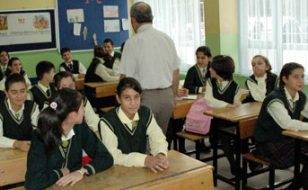A recent court decree in Antalya, southern Turkey, can, so the lawyer involved, be used as a precedent for other parents who do not want their children to attend the controversial obligatory Religious Education (RE) classes.
Lawyer Nusret Gürgöz represented the family D., who applied to court in order to allow their daughter S.D. in fifth grade to be exempt from attending RE classes.
So far, the Ministry of Education has allowed exemptions for children of different religious beliefs if they were stated.
"Could lead to irreparable damage"
However, in their application, the family D.asked for their child to be exempted because the religious education given was “against our decision, religious beliefs and philosophical outlook.” The Antalya 3rd Administrative Court decided in favour of the applicants, arguing that forcing the child to take the class could “lead to irreparable damage.”
The court citted Article 9 of the European Convention on Human Rights, concerned with the freedom of thought, conscience and religion, as well as an article in the Turkish Constitution dealing with religious and conscientious freedom.
Gürgöz has encouraged other parents to follow: “Those parents who so desire, should hand in a letter to school saying that their child attending this lesson is inconsistent with their philosophical outlook. If the school does not act, then they can go to court.”
He advised parents to work with lawyers who were aware of the issue, and also offered legal help to lawyers not as experienced in the area.
The school of S.D. has not offered an exemption, but this is expected to happen within the next 30 days. The district administration of Muratpaşa in Antalya, against whom the suit was brought, is likely to appeal, but even so, says Gürgöz, the girl will be exempt until the case is solved.
In a decree of October 2007, the European Court of Human Rights had said that obligatory RE classes were “a violation of the right to education.” In the case that Hasan Zengin and his daughter Eylem had brought, the court emphasised that the class was only based on a Sunni interpretation of Islam, to the detriment of Alevism, and of course non-Muslim beliefs. The court further said that exempting non-Muslim children from the classes was not enough to provide freedom of religion.
The 8th Chamber of the State Council decreed similarly in December 2007.
Minister claims curriculum has changed
Alevi organisations have long been dissatisfied with the content and the compulsory nature of the class and protested against it frequently in 2008.
As for Minister of Education, Hüseyin Çelik, he said that the court decrees referred to the old curriculum. He said that because the new curriculum also taught about Alevism (albeit, so critics, only in a token manner), the court decisions would not be applied. (TK/AG)









